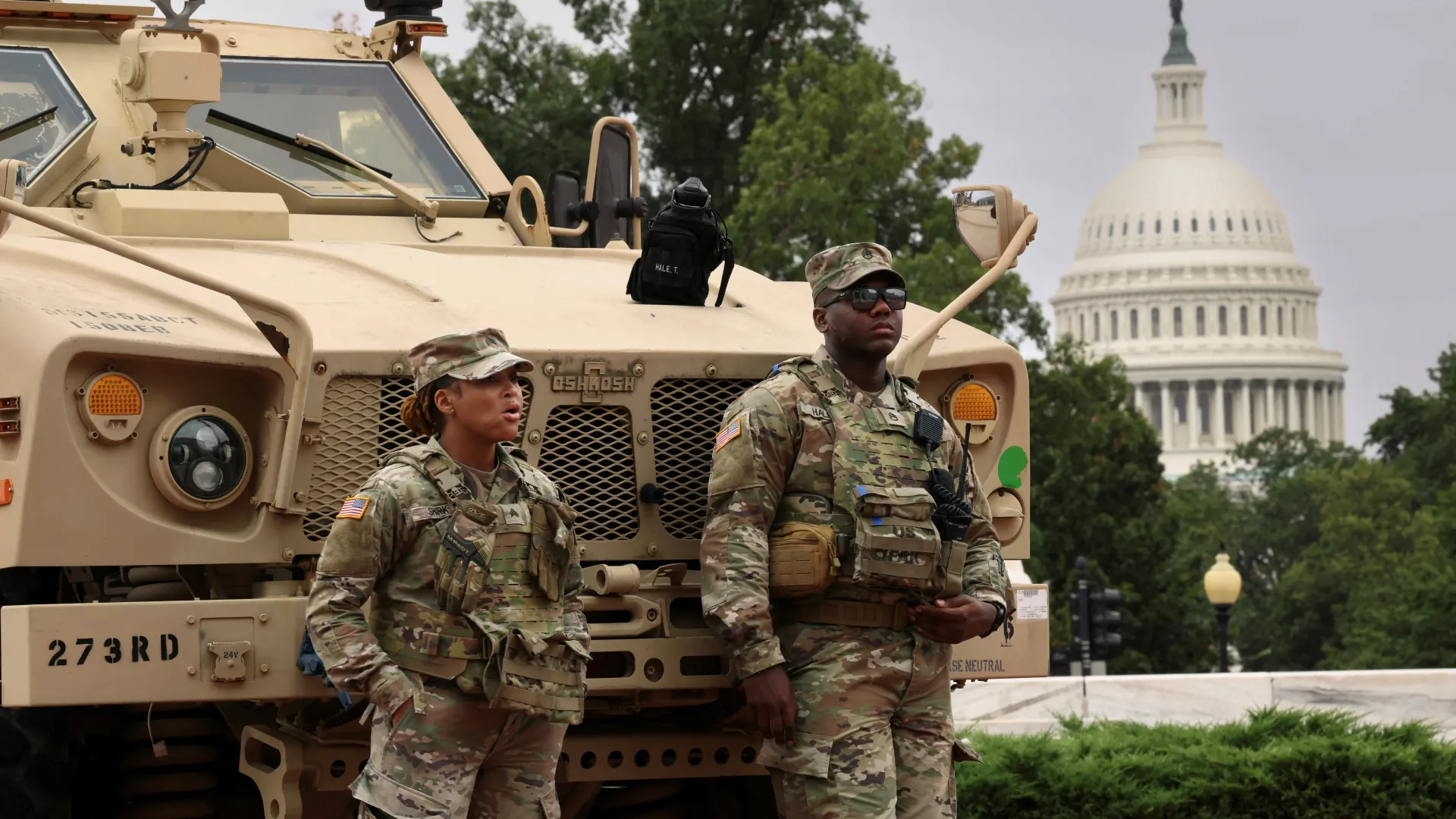In a stunning turn of events that has reverberated across the United States and the world, a federal judge has ordered the immediate closure of the controversial detention facility unofficially dubbed “Alligator Alcatraz.” The prison, associated with former President Donald Trump’s immigration policies, had long been criticized by human rights organizations, lawmakers, and international observers for its harsh conditions, alleged mistreatment of detainees, and its bizarre reputation for being surrounded by live alligators as a deterrent against escape.
The ruling marks one of the most significant legal blows to Trump’s legacy on immigration enforcement, raising questions about accountability, ethics, and the limits of executive power. As the story unfolds, the closure of “Alligator Alcatraz” has become a lightning rod for debates on immigration, civil liberties, and America’s international standing.
This in-depth article unpacks the story from every angle—its origins, controversies, legal challenges, political fallout, and what the future may hold for immigration detention in the United States.
What Was “Alligator Alcatraz”?
“Alligator Alcatraz” was not its official name, but a nickname coined by critics and the press. Located in a remote Southern state, the detention facility was reportedly constructed under the Trump administration as part of a hardline strategy to deter illegal immigration and fast-track deportations.
Unlike conventional detention centers, the facility earned its infamous moniker because of its unusual design—its perimeter was surrounded by swampy waters said to be inhabited by live alligators. The idea, as officials claimed, was to “eliminate the cost of extra fencing” and discourage escape attempts.
While Trump’s allies hailed the facility as a symbol of “American toughness,” critics described it as dystopian and inhumane, pointing to overcrowding, lack of medical care, and psychological trauma endured by detainees.
Why the Judge Ordered Its Closure
The closure order came after a lengthy legal battle spearheaded by immigrant rights organizations, civil liberties groups, and several states that argued the facility violated the U.S. Constitution and international human rights norms.
The judge’s ruling cited several key findings:
Violation of Human Rights: Conditions inside the facility were described as “cruel and degrading,” with testimonies from detainees highlighting lack of adequate food, medical neglect, and unsafe living quarters.
Legal Irregularities: Many detainees were held without timely hearings or proper legal representation, raising constitutional concerns about due process.
Psychological Harm: Expert testimonies revealed alarming rates of depression, trauma, and suicidal ideation among detainees, especially children separated from their families.
Public Safety Concerns: The presence of live alligators was not only inhumane but also dangerous, with documented cases of detainees being injured while trying to escape.
The judge concluded that the facility’s practices were “a stain on America’s democratic and humanitarian values” and ordered its immediate shutdown.
Political Reactions
The ruling has ignited fierce political debate.
Democrats and Progressives: Celebrated the decision as a victory for human rights. Lawmakers like Alexandria Ocasio-Cortez and Bernie Sanders emphasized that the closure should serve as a reminder that “America cannot allow cruelty to be policy.”
Republicans and Trump Loyalists: Criticized the ruling as judicial overreach. Trump himself, speaking at a rally, defended the facility, claiming it was “the most effective immigration deterrent ever built” and accused the judge of being part of a “radical left conspiracy.”
International Response: The closure has been welcomed by human rights organizations such as Amnesty International and Human Rights Watch. The United Nations also issued a statement praising the decision, highlighting that the U.S. must uphold global standards on the treatment of migrants.
The Human Cost of “Alligator Alcatraz”
While political rhetoric dominates headlines, the human stories emerging from the facility paint a heartbreaking picture.
Families Torn Apart: Several detainees reported being separated from their children for months, with little to no information on their whereabouts.
Deaths and Injuries: Advocacy groups documented multiple cases of deaths due to untreated medical conditions, along with injuries caused by unsafe living environments and alligator attacks.
Psychological Trauma: Survivors described living in constant fear, with some comparing the experience to being in a “war zone.”
One former detainee from Central America said in a court affidavit: “I thought I had escaped danger in my country, but when I arrived in America, I found something even worse. I lived every day in fear of being forgotten behind those walls.”
Legal Precedents and Implications
The closure sets a major legal precedent for how far U.S. administrations can go in enforcing immigration policies. Legal scholars note that this ruling could restrict future presidents from experimenting with unregulated or extrajudicial detention facilities.
It also strengthens the argument that immigration enforcement must comply with both U.S. constitutional protections and international human rights obligations.
Trump’s Immigration Legacy Under Scrutiny
The shutdown of “Alligator Alcatraz” has revived broader discussions about Trump’s controversial immigration legacy.
Family Separation Policy (2018): Widely condemned for separating thousands of children from their parents at the U.S.-Mexico border.
Travel Bans: Targeted several Muslim-majority countries, sparking global criticism.
Border Wall: His flagship policy remains incomplete, with questions about its cost and effectiveness.
With the 2024 election cycle still fresh in memory, Trump’s policies remain divisive. The closure of this detention center could weaken his narrative of being the only leader who “secured the border.”
The Future of Immigration Detention in America
The closure leaves the U.S. government with pressing questions: How should the country balance border security with humanitarian obligations? What alternatives to detention can be pursued?
Experts suggest several paths forward:
Community-Based Programs: Research shows that supervised release programs and case management systems are far more humane and cost-effective than mass detention.
Legal Reforms: Ensuring detainees have access to timely hearings and legal counsel.
International Cooperation: Working with neighboring countries to address root causes of migration, such as violence and poverty.
Public Opinion
Polls show Americans remain deeply divided. According to a recent survey, 52% support closing facilities like “Alligator Alcatraz,” citing humanitarian concerns, while 42% believe such facilities are necessary to deter illegal immigration. The remaining respondents were undecided.
This polarization underscores how immigration remains one of the most contentious issues in U.S. politics.
Expert Perspectives
Dr. Maria Velasquez, Human Rights Scholar: “The closure of ‘Alligator Alcatraz’ is more than a legal decision; it’s a moral reckoning for America.”
James Whitman, Former DHS Official: “The facility may have been controversial, but it was effective. Its closure will test whether alternative systems can manage border security.”
UN Spokesperson: “This decision affirms that the United States, as a global leader, must embody the principles of dignity and human rights.”
FAQs
What was “Alligator Alcatraz”?
It was a detention facility associated with Trump’s immigration policies, nicknamed for its alligator-surrounded perimeter.
Why did the judge order its closure?
The facility was found to violate human rights, deny due process, and endanger detainees.
How did Trump react to the ruling?
Trump defended the facility, calling it effective and accusing the judge of bias.
How many people were detained there?
Estimates suggest thousands passed through the facility, though exact numbers remain classified.
What happens to detainees now?
They will be relocated to other facilities or placed in supervised release programs while their cases proceed.
What does this mean for U.S. immigration policy?
The ruling sets a precedent limiting extreme detention practices and calls for more humane alternatives.
Conclusion
The closure of Trump’s “Alligator Alcatraz” detention center is a watershed moment in America’s ongoing struggle to reconcile border security with human dignity. For supporters, it signals the triumph of justice over cruelty. For critics, it represents a dangerous weakening of immigration enforcement.
What remains certain is that the debate is far from over. The decision has not only reshaped Trump’s legacy but also challenged America to confront the ethical dimensions of its immigration policies. As the country looks ahead, the question lingers: Can the United States build an immigration system that is both secure and humane?











